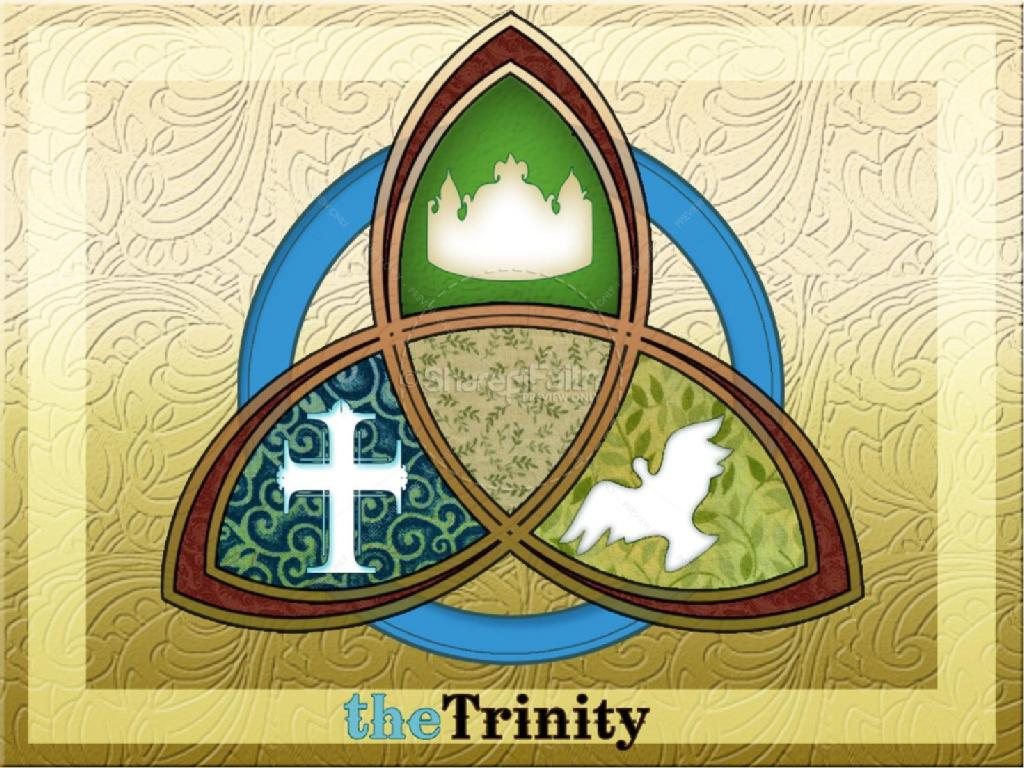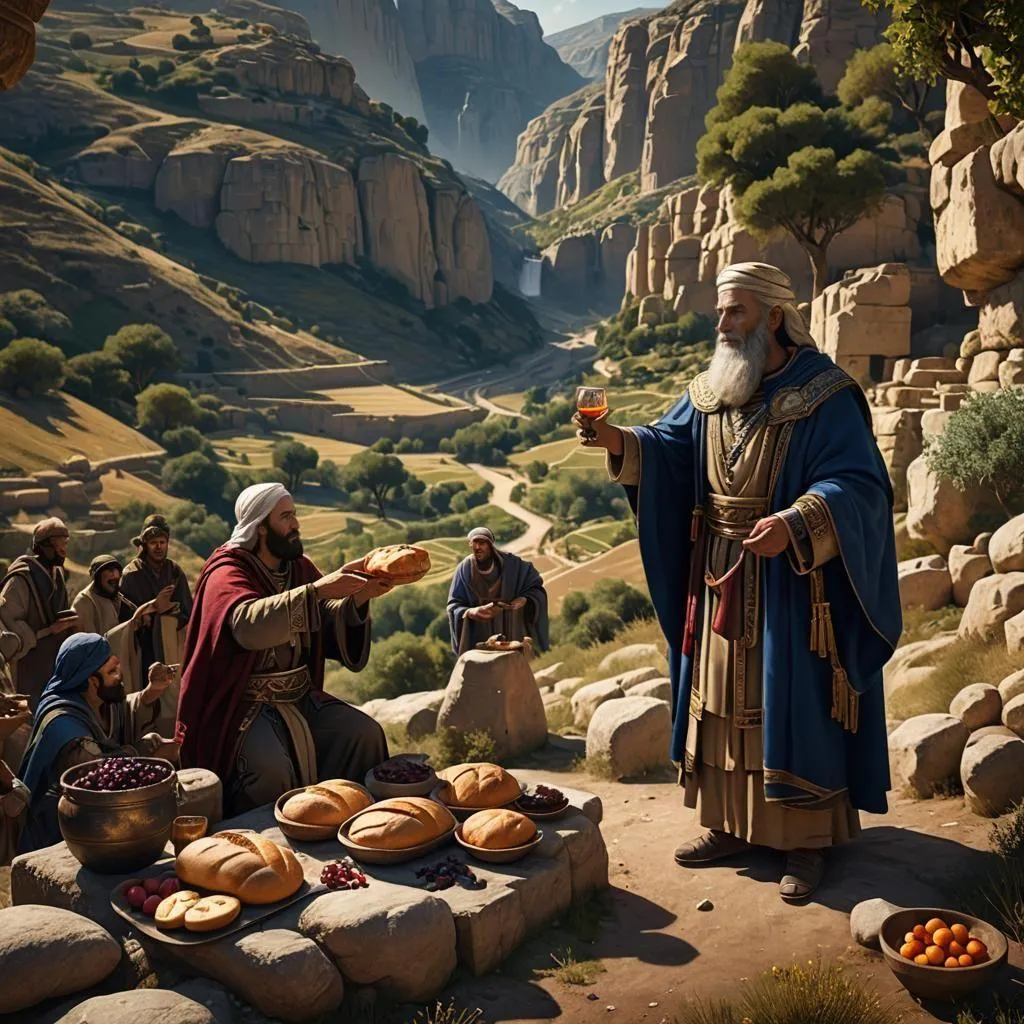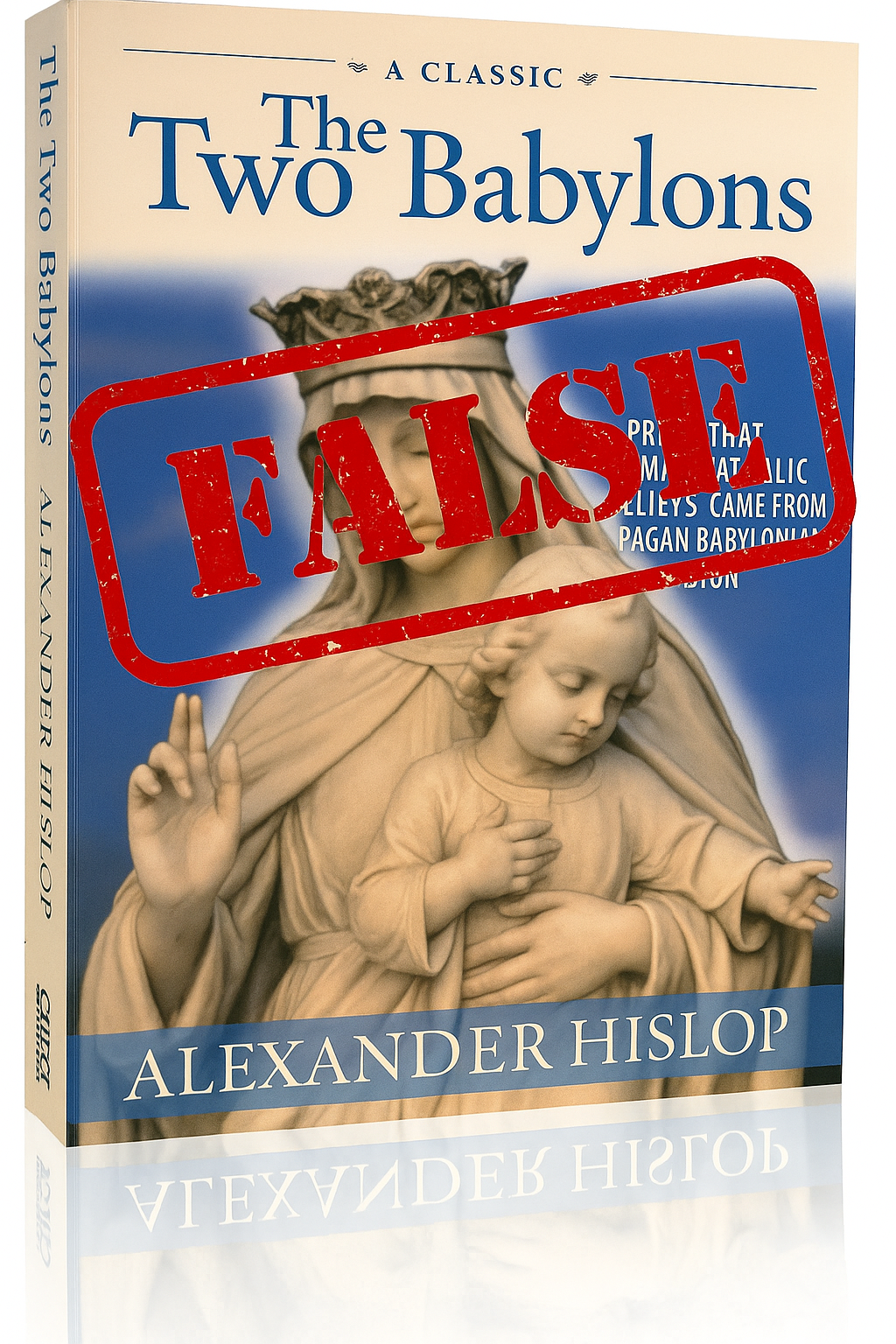The Coming of Jesus: Our Future Hope - What Now?

Series Index
- The Coming of Jesus: Introduction
- The Coming of Jesus: Daniel's 70 Weeks
- The Coming of Jesus: Coming on the clouds
- The Coming of Jesus: The Olivet Discourse – Part 1
- The Coming of Jesus: The Olivet Discourse – Part 2
- The Coming of Jesus: Revelation Fulfilled?
- The Coming of Jesus: Our Future Hope - What Now?
So here we are at the final part of this Coming of Jesus series. If you’re new here, you can start from the beginning by clicking here, or carry on reading as I will give a brief overview of what’s been covered so far.
This series has covered many topics and themes of eschatology, starting with Daniel’s prophecy of the Messiah’s first coming to this world, all the way through to the prophecies of another coming. It’s been a very interesting and eye-opening journey of discovery, at least for myself, if no one else. I didn’t start this study with a particular doctrine or conclusion in mind, but rather went in with the mindset to examine the Futurist belief system and see if it holds up to scrutiny, because I’d become despondent with it over the years when I read certain passages in the Bible and only find Futurist exegesis which, to be honest, was more of a stretch to accept than I was comfortable with. So many times I’d read of the New Testament authors proclaiming the soon-ness of Christ’s coming, and the great sense of urgency that comes from the pages of the different epistles, especially in the ones written later on (such as 1 John).
So when I discovered there was an alternative way to look at these passages (called Preterism as I later found out), I decided it was time to find out for sure if what I’d been told most of my Christian life was correct in terms of a total future coming of Jesus and fiery destruction of the known world, or whether it was something else altogether. What I discovered has led me through a life-changing event in terms of my theology, to the point where all of those “soon” and “at hand” verses of Scripture actually make sense without theological gymnastics to make it all fit into a 2000+ year timeframe!
Let’s recap!
Over 400 years before Jesus was born, the angel Gabriel came to Daniel and gave him a vision of the future coming messiah and of God’s Kingdom. Right on time, Jesus was born and announced the advent of the Kingdom of God. Jesus went around proclaiming that the “time was fulfilled” and the Kingdom was “at hand” (Mark 1:15) and that it was “in [their] midst” and “within you” (or among you; Luke 17:21).
During Jesus’ ministry, he foretells and prophesies the destruction of the temple along with the coming of the Son of Man “in the clouds” (Matt 24:30) and that this would be fulfilled within the generation of his listeners “when all these [prophecies] have taken place” (Matt 24:34). A recap through various Old Testament prophecies showed that this type of apocalyptic language of coming with clouds, darkening the skies and falling stars, was often used by God through His prophets when pronouncing judgement on the nations. This judgement came by the hand of other nations with their armies, used by God for His purposes – and what Jesus spoke of was no different. God used the Roman armies to sack Jerusalem and burn the temple to the ground, as prophesied, and did this as punishment upon His own people for the rejection and death of the Messiah (Mark 12:1-9) and for all the blood of the prophets the nation of Israel killed over the centuries (Luke 11:49-51).
Examining the Olivet Discourse in some detail alongside contemporary historical accounts by Josephus revealed that the Great Tribulation foretold by Jesus certainly was great and terrible. Miraculous events happened, the temple glowed with unnatural light at night as voices were heard saying “let us depart” from there; great portents were seen in the skies as angelic armies ran through the clouds over Jerusalem, the streets ran with blood and fiery destruction rained down across the city! But those who were in Christ were saved, as promised. They who held to the faith until the end were warned by angels before this destruction came so that they could escape the city and survive.
This was the culmination of all things! The old world with its sacrificial system and priestly laws and rules for pleasing God and removing sin was done away with; now Christ has come, a new law and rule had also come: the Law of Christ/Love (Gal 6:2; 1 Cor 9:21). Grace abounds and love rules. Sin and death are defeated (2 Tim 1:10) and those who believe on Christ are given new life and right to be heirs to eternal life (Titus 3:6-7)! The old has passed and the new has surely come (2 Cor 5:17)!
Through baptism we are born again into our new bodies, spiritually speaking (Col 2:12), whilst we wait to put on and clothe ourselves with immortality fully upon physical death by our resurrected bodies (1 Cor 15:54).
In terms of the new creation in contrast to the old, the early Christians had a belief and view of the resurrection of Jesus as being the beginning of the new creation – the eighth day they called it. The epistle of Barnabas conveys it well:
The sabbaths, that now are, are not acceptable unto me, but that which I have made is, even that in which, after that I have brought all things to an end, I shall make a beginning of the eighth day, which thing is the beginning of another world.
Wherefore we keep the eighth day as a day of gladness, on which also Jesus rose from the dead, and after he had appeared ascended unto heaven.
Barnabas 15:8,9
An unexpected twist
After an exploration through Revelation, comparing and contrasting with the Olivet Discourse and historical accounts, I found myself discovering things I didn't expect. Up to this point I was becoming fairly convinced that everything was fulfilled in 70 AD with the destruction of Jerusalem, but the more I studied Revelation, even with this new perspective, I couldn't shake the feeling that there was still more.
As much as I read various commentaries and other Preterist studies and comments on Revelation, it was giving me the same feeling I had about Futurism: certain parts of Scripture were being forced to fit into a theological model where they didn't necessarily belong. It just didn't all fit into 70 AD – if anything, much of Revelation stretches forward another 400 or so years to the fall of the Roman Empire and then breaks to speak on other spiritual mysteries like the millennium and New Jerusalem: things which are spoken of in a physical sense, but are conveying heavenly events.
After reading many various writings from the earliest Christians and their views and interpretations on all these events, I can affirm that many of the early writers believed Daniel's 70 weeks ended with the destruction of Jerusalem and that they saw the fulfilment in that. But that they also still looked forward to an actual millennium reign with a total culmination of world events. Later in Christian history, the millennium came to be viewed as metaphorical of spiritual realities, and the earlier views pertaining to 70 AD were forgotten it seems. Futurism crept in in later centuries or so, but was roundly condemned by some prominent early Christian leaders of the time. It came up again shortly after the Reformation in the 1500s as Rome tried to defer Protestant claims of the Pope being the antichrist, but It only really made a comeback in the Church in recent history in the 1800s through the teaching of Darby and Scofield.
From all this though, I can no longer accept full futurism as a valid doctrine of “end times”. I'm open to the historical position that there will possibly be an actual millennium reign. But whether that happens at the six thousandth year (as was expected) according to the Jewish calendar – roughly another 224 or so years away, or at some indeterminate time, I don't know and I won't presume to predict so.
Urgency and imminence
With that said, let's quickly look over all the places where these events were expected “soon” or were said to be “at hand”. Seeing it all as a list makes you realise just how often it was said in the New Testament and just how soon the early church really expected things to happen! I find it hard to believe that with all this urgency, the early Christians were actually speaking of a “soon-but-not-soon-really-we-mean-two-thousand-years-or-so” and expected nothing to come of it.

Let's dive in!
Matthew 10:23
When they persecute you in one town, flee to the next; for truly I tell you, you will not have gone through all the towns of Israel before the Son of Man comes.
1 Corinthians 7:29-31
I mean, brothers and sisters, the appointed time has grown short; from now on, let even those who have wives be as though they had none, and those who mourn as though they were not mourning, and those who rejoice as though they were not rejoicing, and those who buy as though they had no possessions, and those who deal with the world as though they had no dealings with it. For the present form of this world is passing away.
1 Thessalonians 4:15
For this we declare to you by the word of the Lord, that we who are alive, who are left until the coming of the Lord, will by no means precede those who have died.
Hebrews 9:26
But as it is, he has appeared once for all at the end of the age to remove sin by the sacrifice of himself.
Hebrews 10:37
For yet “in a very little while, the one who is coming will come and will not delay
James 5:8-9
You also must be patient. Strengthen your hearts, for the coming of the Lord is near. Beloved, do not grumble against one another, so that you may not be judged. See, the Judge is standing at the doors!
1 Peter 4:7
The end of all things is near; therefore be serious and discipline yourselves for the sake of your prayers.
1 John 2:18
Children, it is the last hour! As you have heard that antichrist is coming, so now many antichrists have come. From this we know that it is the last hour.
Revelation 1:1,3
The revelation of Jesus Christ, which God gave him to show his servants what must soon take place … and blessed are those who hear and who keep what is written in it; for the time is near.
Revelation 22:20
The one who testifies to these things says, “Surely I am coming soon.”
If you’re interested to read more, you can see a list of 101 “time texts” here from the New Testament which demonstrate the “at hand-ness” of everything!
Despite this coming from an atheist blog on the topic(!), the author does make a valid point here in the way he describes the unconscious effect of the Futurist doctrine, especially that of the Rapture:
“Worse, it encourages people to take no action in the face of humanity’s problems in the belief that such assistance would be pointless since God will soon return to claim his own anyway. Such belief encourages a view of the world as a “sinking ship” – not something to be protected or cherished, but only something to be escaped as soon as possible.”
Escapism is not the Christian way. The New Testament is full of exhortations to hold fast to the faith (Heb 10:23) and persevere through trials with endurance (Rom 2:7; James 1:12). To lean on God for strength and safety, not to sit and hope to be scooped up and out of troubles!
Even when Jesus was praying for his disciples, knowing full well persecution and death awaited them, did he pray that the Father would rescue them from the world?
Nope.
John 17:15
I am not asking you to take them out of the world, but I ask you to protect them from the evil one.
What now?
So where does this leave us now, today? With more hope, I would say. If indeed the tribulation, and signs, wars and bloodshed are behind us and was about the coming judgement on the nation of Israel, then we ought to have no fear of the future or things in the news and headlines on the papers. Definitely not any worry from those preachers who pop up every few years predicting the End.

Our hope should be in Christ and his finished work. Even if there is still a “coming” in the future, and we’re taken up to heaven in new bodies, when (or if) it happens, it’ll happen and will be unlike anything else. But in the meantime we should have our focus on our faith and lives in the now. Living righteously for Christ, loving God and loving our neighbours: fulfilling the Law of Love in our daily lives, making this world a better place, being the salt and light.
Don’t spend so much time and energy watching for signs of doom and gloom that you miss the hurting and needy people around you who need the light of Jesus in their lives.
Bring life, preach love and let God worry about whether he will end the universe or not.
The world is only a sinking ship if we let it be one, so let us partner with Jesus in the work of reconciliation, helping to bring all things back to God (2 Cor 5:18-19), living in the reality of the eighth day!
Further Reading
- http://www.bible.ca/rapture-origin-john-nelson-darby-1830ad.htm
- http://www.patheos.com/blogs/daylightatheism/essays/2000-years-late/
- http://georgekouri.publishpath.com/the-early-church-fathers-and-the-last-days-of-the-jewish-age
- https://en.wikipedia.org/wiki/Preterism
- https://en.wikipedia.org/wiki/Futurism_(Christianity)
- https://en.wikipedia.org/wiki/Christian_eschatology
- http://www.preteristarchive.com/Hyper/2002_green_time-indicators.html
Leave a comment Like Back to Top Seen 1.5K times Liked 4 times
Enjoying this content?
Support my work by becoming a patron on Patreon!
By joining, you help fund the time, research, and effort that goes into creating this content — and you’ll also get access to exclusive perks and updates.
Even a small amount per month makes a real difference. Thank you for your support!
Subscribe to Updates
If you enjoyed this, why not subscribe to free email updates and join over 853 subscribers today!
My new book is out now! Order today wherever you get books
Recent Posts
Luke J. Wilson | 8 days ago | Islam
You are not alone. Around the world, many Muslims — people who already believe in one God, pray, and seek to live righteously — are drawn to know more about Jesus (ʿĪsā in Arabic). Some have heard He is more than a prophet. Some have sensed His presence in a dream or vision. And some simply long to know God more deeply, personally, and truly. So what does it mean to become a Christian? And how can you take that step? This guide is for you. 1. What Christians Believe About God and Jesus ➤ One God, Eternal and Good Christians believe in one God — the same Creator known to Abraham, Moses, and the prophets. But we also believe God is more personal and relational than many realise. In His love, He has revealed Himself as Father, Son (Jesus), and Holy Spirit — not three gods, but one God in three persons. ➤ Jesus Is More Than a Prophet Muslims honour Jesus as a great prophet, born of the virgin Mary. Christians also affirm this — but go further. The Bible teaches that Jesus is the Word of God (Kalimat Allāh), who became flesh to live among us. He performed miracles, healed the sick, raised the dead — and lived without sin.Jesus came not just to teach but to save — to bring us back to God by bearing our sins and rising again in victory over death. 2. Why Do We Need Saving? ➤ The Problem: Sin All people — no matter their religion — struggle with sin. We lie, get angry, feel jealous, act selfishly, or fail to love God fully. The Bible says: “All have sinned and fall short of the glory of God.” (Romans 3:23) Sin separates us from God. And no matter how many good deeds we do, we can never make ourselves perfect or holy before Him. ➤ The Solution: Jesus Because God loves us, He did not leave us in our sin. He sent Jesus, His eternal Word, to live as one of us. Jesus died willingly, offering His life as a sacrifice for our sins, then rose again on the third day. “But God proves his love for us in that while we still were sinners Christ died for us.” (Romans 5:8) 3. How Do I Become a Christian? Becoming a Christian is not about joining a Western religion. It’s about entering a relationship with God through faith in Jesus Christ. Here is what the Bible says: ✝️ 1. Believe in Jesus Believe that Jesus is the Son of God, that He died for your sins, and that He rose again. “If you confess with your lips that Jesus is Lord and believe in your heart that God raised him from the dead, you will be saved.” (Romans 10:9) 💔 2. Repent of Your Sins Turn away from sin and ask God to forgive you. This is called repentance. It means being truly sorry and choosing a new way. “Repent therefore, and turn to God so that your sins may be wiped out.” (Acts 3:19) 💧 3. Be Baptised Jesus commands His followers to be baptised in water as a sign of their new life. Baptism represents washing away your old life and rising into a new one with Jesus. “Repent and be baptised every one of you in the name of Jesus Christ so that your sins may be forgiven.” (Acts 2:38) 🕊️ 4. Receive the Holy Spirit When you believe in Jesus, God gives you the Holy Spirit to live within you, guiding you, comforting you, and helping you follow His will. “You received the Spirit of adoption, by whom we cry, ‘Abba! Father!’” (Romans 8:15) 🧎 5. Begin a New Life As a Christian, you are born again — spiritually renewed. You begin to grow in faith, love, and holiness. You read the Bible, pray, fast, and gather with other believers. Your life is no longer your own; you now live for God. 4. What Does a Christian Life Look Like? Jesus said: “If anyone wants to become my followers, let them deny themselves and take up their cross and follow me.” (Matthew 16:24) This means: Loving God with all your heart Loving your neighbour — even your enemies Forgiving others ...
Luke J. Wilson | 05th May 2025 | Politics
When we think about David and Saul, we often focus on David’s rise to kingship or his battle with Goliath. But hidden within that story is a deep lesson for today’s generation about leadership, resistance, and the power of revolutionary love. At a recent youth training event (thanks to South West Youth Ministries), I was asked how I would present the story of David and Saul to a Christian teenage youth group. My mind turned to the politics of their relationship, and how David accepted Saul’s leadership, even when Saul had gone badly astray. David recognised that Saul was still God’s anointed king — placed there by God Himself — and that it was not David’s place to violently remove him. Gen-Z are more politically aware and engaged than previous generations, and are growing up in a world where politics, leadership, and social issues seem impossible to escape. We live in a world where political leaders — whether Trump, Putin, Starmer, or others — are often seen as examples of failed leadership. It’s easy to slip into bitterness, cynicism, or violent rhetoric. These kids are immersed in a culture of activism and outrage. As Christians, we’re called to care deeply about truth and justice and approach leadership differently from the world around us (Hosea 6:6; Isaiah 1:17; Micah 6:8). The story of David and Saul offers pertinent lessons for our modern lives. Respect Without Endorsement David’s respect for Saul was not blind loyalty. He did not agree with Saul’s actions, nor did he ignore Saul’s evil. David fled from Saul’s violence; he challenged Saul’s paranoia; he even cut the corner of Saul’s robe to prove he had the chance to kill him but chose not to. Yet throughout, David refused to take matters into his own hands by force. Why? Because David understood that even flawed authority ultimately rested in God’s hands, he trusted that God would remove Saul at the right time. This is echoed later in the New Testament when Paul writes in Romans 13 that “there is no authority except from God, and those authorities that exist have been instituted by God”, something even Jesus reminded Pilate of during his trial (John 19:10–11). In other words, even flawed leadership can be part of God’s bigger plan, whether for blessing or discipline. Even when leaders go bad, our call as believers is to maintain integrity, respect the position, and resist evil through righteousness — not rebellion. David and Saul: A Lesson in Respect and Restraint Saul was Israel’s first king — anointed by God but later corrupted by pride, fear, and violence. David, chosen to succeed him, spent years running for his life from Saul’s jealous rage. One day, David found Saul alone and vulnerable in a cave. His men urged him to strike Saul down and end the conflict. But David refused: “I will not raise my hand against my lord; for he is the Lord’s anointed.” (1 Samuel 24:10) Instead of killing Saul, David cut off a piece of his robe to prove he could have harmed him, but didn’t. In doing so, he demonstrated a real form of nonviolent resistance. He stood firm against Saul’s injustice without resorting to injustice himself, and acted in a way that could try to humble Saul instead. Peacemaking Is Not Passivity There is a modern misconception that peacemaking means doing nothing and just letting injustice roll all over us. But true biblical peacemaking is not passive; it actively resists evil without becoming evil. Interestingly, David’s actions toward Saul also foreshadow the type of nonviolent resistance Jesus later taught. When Jesus commanded His followers to turn the other cheek, go the extra mile, and love their enemies, he was not calling for passive submission but offering what scholar Walter Wink describes as a “third way” — a bold, peaceful form of resistance that uses what he calls “moral jiu-jitsu” to expose injustice without resorting to violenc...
Luke J. Wilson | 21st April 2025 | Easter
Over the years, I’ve encountered many Christians who’ve quoted from Alexander Hislop’s The Two Babylons as if it were a solid historical resource. The book claims that the Roman Catholic Church is not truly Christian but rather a continuation of ancient Babylonian religion. It’s self-assured and sweeping, and for many people, it seems to explain everything, from Marian devotion to Lent and Easter, to Christmas, as rooted in paganism. But is it accurate? In short: no, it really isn’t. Hislop’s work is a classic example of 19th-century pseudohistory — a polemical piece, written to prove a point, not to explore any historical truth. Flawed Methods and Wild Claims Hislop argues that most Catholic practices — from the Mass and clerical robes to festivals like Christmas and Easter — were somehow borrowed from Babylonian religion. The problem being that Hislop doesn’t rely on primary sources or credible historical data. Instead, he draws connections based on word similarities (like Easter and Ishtar) or visual resemblances (like Mary and child compared with mother-goddess statues from ancient cultures). But phonetic resemblance isn’t evidence, and neither is visual similarity. For example, if I say “sun” and “son” in English, they may sound alike, but they aren’t the same thing. That’s the level of reasoning at work in much of The Two Babylons. Hislop often lumps together completely different ancient figures — Isis, Semiramis, Ishtar, Aphrodite — as if they were all just variations of the same deity. He then tries to say Mary is just the Christian version of this pagan goddess figure. But there’s no credible evidence for that at all. Mary is understood through the lens of Scripture and Christian theology, not through pagan myth. The earliest depictions of Mary and the Christ-child date back to the second century and do not resemble any of the pagan idols. But, again, the common accusations are based on superficial similarities of a woman nursing a child. That’s going to look the same no matter who or what does that! Oldest depiction of Mary. Dura-Europos Church, Syria, 2nd century What About Lent and Tammuz? One of Hislop’s more popular claims is that Lent comes from a Babylonian mourning ritual for the god Tammuz, mentioned in Ezekiel 8:14. He argues that early Christians borrowed the 40-day mourning period and just rebranded it. But this doesn’t line up with the evidence. Lent developed as a time of fasting and repentance leading up to Easter — especially for new believers preparing for baptism. The number forty comes from Scripture: Jesus’ forty days in the wilderness, Moses’ fast on Sinai, and Elijah’s journey to Horeb. Church Fathers like Irenaeus and Athanasius saw it as a time for self-denial and spiritual renewal — not mourning a pagan god. Yes, there are pagan festivals that involve seasonal death and rebirth stories. But similarity does not mean origin. If that logic held, then even Jesus’ resurrection would be suspect because pagan cultures also told resurrection-like stories. Yet the gospel stands apart — not because of myth but because of history and revelation. Why Hislop’s Work Persists Even though The Two Babylons is poor scholarship, it’s unfortunately had a long shelf life. That’s partly because it appeals to a certain kind of suspicion. If you’re already sceptical about the Catholic Church, Hislop offers an easy explanation: “It’s all pagan!”. But history isn’t ever that simple. And theology — especially the theology handed down through the ages by the faithful— isn’t built on conspiracy and apparent obscure connections, but on Christ and the truth of the Scriptures. Interestingly, even Ralph Woodrow, a minister who once wrote a book defending Hislop’s ideas, later retracted his views after digging deeper into the evidence. He eventually wrote a book called The Babylon Connect...
Darwin to Jesus | 16th April 2025 | Atheism
Guest post by Darwin to Jesus Dostoevsky famously said, “If there is no God, then everything is permitted.” For years, as an atheist, I couldn’t understand what he meant, but now I do… Here’s a simple analogy that shows why only theism can make sense of morality: Imagine you just got hired at a company. You show up, set up your desk, and decide to use two large monitors. No big deal, right? But then some random guy walks up to you and says: “Hey, you’re not allowed to do that.” You ask, “What do you mean?” They say, “You’re not permitted* to use monitors that big.” In this situation, the correct response would be: “Says who?” We’ll now explore the different kinds of answers you might hear — each one representing a popular moral theory without God — and why none of them actually work. Subjective Morality The random guy says, “Well, I personally just happen to not like big monitors. I find them annoying.” Notice that’s not a reason for you to change your setup. Their personal preferences don’t impose obligations on you. This is what subjective morality looks like. It reduces morality to private taste. If this were the answer, you’d be correct to ignore this person and get back to work — big monitors are still permitted. Cultural Relativism Instead, they say, “It’s not just me — most people here don’t use big monitors. It’s not our culture.” That’s cultural relativism: right and wrong are just social customs, what is normal behavior. But notice customs aren’t obligations. If the culture were different, the moral rule would be different, which means it isn’t really moral at all. You might not fit in. You might not be liked. But you’re still permitted to use big monitors. Emotivism Here after being asked “says who?” the person just blurts out, “Boo, big monitors!” You reply, “Hurrah, big monitors!” That’s the entire conversation. This is emotivism. On this moral theory when we talk about right and wrong we’re actually just expressing our personal feelings towards actions, I boo rape, you hurrah rape. But shouting “boo!” at someone doesn’t create real obligations. You’re still permitted to use large monitors. Utilitarianism Here, the person says, “Your big monitors lower the overall productivity of the office. You’re not permitted to use them because they lead to worse consequences.” This is utilitarianism: morality is based on producing the greatest happiness for the greatest number. But even if that’s true — so what? Who says you’re obligated to maximize group productivity? And what if your monitors actually help you work better? Utilitarianism might tell you what leads to better outcomes, but it doesn’t tell you why you’re morally obligated to follow that path — especially if it comes at your own expense. You’re still permitted to use large monitors. Virtue Ethics Here they say, “Using big monitors just doesn’t reflect the virtues we admire here — simplicity, humility, restraint.” This is virtue ethics. Morality is about becoming the right kind of person. But who defines those virtues? And why are you obligated to follow them? What if your idea of a virtuous worker includes productivity and confidence? Without a transcendent standard, virtues are just cultural preferences dressed up in moral language. If you don’t care about virtue or their arbitrary standards, then you have no obligation. You’re still permitted to use large monitors. Atheist Moral Realism But what if they say, “Listen, there’s a rule. It’s always been here. It says you can’t use monitors that large.” You ask, “Who made the rule?” They say, “No one.” You ask, “Who owns this company?” They say, “No one owns it. The company just exists.” You look around and ask, “Where is the rule?” They say, “You won’t find it w...













